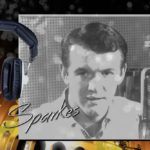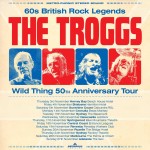What Happened In The Little River Band Controversy?
It’s fairly common for a music industry feud to pop up now and then, and the Little River Band controversy is one such dispute that rocked the rock ‘n’ roll scene back in the late ‘90s and early 2000s.
Little River Band was formed in Melbourne, Australia, by a group of musicians from other well-known local bands at the time. The initial lineup included Beeb Birtles, Graham Davidge, Graeham Goble, Dave Orams and Derek Pellicci, with Glenn Shorrock joining as the lead vocalist.
Birtles already had some fame to his name, having previously played in the pop-rock band Zoot. Meanwhile, Goble came from the folk-rock group Allison Gros, and Shorrock served vocals for the bands Twilights and Axiom, both of which had attempted to break into the UK record market.
What is the Little River Band?
The band had been going by the name Mississippi when they played their first official gig as a band and had seen some chart success in Australia with their single, ‘Kings of the world’. During a drive to a scheduled performance, Shorrock saw a road sign for Little River and spontaneously suggested ‘Little River Band’ as their new name. The group quickly adopted the new moniker.
Seemingly as a portent for the future Little River Band controversy, the band underwent more lineup changes. David Briggs joined as the guitarist, and George McArdle took over as the bass guitarist, replacing session musicians Ric Formosa and Roger McLachlan, who had taken over for Graham Davidge and David Orams, respectively.
Formosa, who was not keen on touring internationally, left to focus on session work, composing and arranging, although he continued to collaborate with the band on string arrangements for future albums. George McArdle would eventually take over for McLachlan to play the bass guitar, thus marking the formation of what many consider the classic lineup of the band.
With this roster of members, Little River Band saw success throughout Australia, and in 1976 they embarked on their first international tour, opening for Queen in London and the Hollies on their European tour.
Despite the many lineup changes throughout Little River Band history, superstardom seemed within reach, and in 1977, they released their third studio album, Diamantina cocktail, to commercial and critical acclaim. The album featured global hits like ‘Help is on its way’ and ‘Reminiscing’.
What is the Little River Band controversy?
By early 1999, the lineup had changed drastically, with the Little River Band new members being Glenn Reither (keyboards), Kevin Murphy (drums), Stephen Housden (lead guitar), Paul Gildea (rhythm guitar), Wayne Nelson (bass and vocals) and Steve Wade (rhythm guitar). At the time, they represented the band after the original Australian lineup had left to pursue other musical ventures.
While there wasn’t a big band breakup scandal per se, several legal battles followed over ownership of the band name, which also included the rights to perform under the name Little River Band.
Birtles, Shorrock and Goble formed another pop rock group that intended to advertise itself as ‘The Original Little River Band’. However, Housden lodged an action against the use of the band name, logos and trademarks. The band name ownership controversy was settled out of court.
Sadly, the continuing Little River Band controversy has been divisive among fans, with some supporting the original members and others backing the new lineup.
Official stance from the band members
Housden firmly declared that he would not permit the original members to perform under the Little River Band name ‘in this lifetime’.
The American lineup also blocked Australian fans from their website and Facebook page due to negative comments from the original members, with the disagreements taking a particularly personal turn.
In 2022, Graeham Goble from the original lineup was quoted saying this about the Little River Band controversy: ‘[T]here’ve been a lot of compilations and different releases through the record company over the years that we haven’t agreed with.’
Members of the original lineup have also come together to release Little River Band greatest hits compilations of their own.
Keep rockin’ on with Jukebox Saturday Night
Feeling nostalgic about artists like the Little River Band and Poison Ivy Rorschach? If you tune in to Foxtel’s Aurora Channel 173 on Saturdays between 7.30 p.m. and 8.30 p.m., Jukebox Saturday Night will take you back in time to the golden age of rock and pop from the ‘50s through the ‘80s.
Jukebox Saturday Night is where we play music videos and clips from the past every week, many of which you may have only heard of on the radio or tape decks. It’s also a great show for updates on the Little River Band controversy and even where Sade now focuses her artistic visions.
You can even revisit the greatest hits from musical acts that Darryl Sambell managed in his heyday!
If you want to participate in the broadcast, you can send us your song requests for any of the Little River Band hits, and if we pick your submissions, we’ll give you a shout-out and credit you on the show.
Frequently Asked Questions (FAQ)
How did the original members of the Little River Band form the group?
By the 1970s, Australia had a strong rock music scene, but only a few homegrown bands were known outside the country. The Little River Band original members wanted to change that with the Little River Band, which was formed with the intention of breaking into America.
Who are the members of the Little River Band?
The current lineup of Little River Band features Wayne Nelson on bass guitar, Chris Marion on keyboards, Bruce Wallace and Colin Whinnery on guitar and Ryan Ricks on drums. All current members contribute vocals, with Nelson and Whinnery sharing lead vocals.
The original Australian lineup from 1975 was composed of Glenn Shorrock on lead vocals, Graeham Goble and Beeb Birtles on guitar and vocals and Derek Pellicci on drums. The original lineup also included Graham Davidge and David Orams on lead and bass guitar, respectively.
Different lineups are presently at odds with each other, leading to the current Little River Band controversy over the band name.
Why are there disputes over the name ‘Little River Band’?
Years after the original Little River Band members split from the group beginning in 1998, the original Australian lineup and the new, current American members of the band have been in dispute over the rights to the name.
Guitarist Stephen Housden retained ownership of Little River Band’s name, trademarks and logos, which the former members did not agree with. The resulting copyright controversy, also known as the Little River Band controversy, has led to legal disputes between former and current band members.
Classic rock ‘n’ roll is alive and well at Jukebox Saturday Night!
Jukebox Saturday Night celebrates the great music from past decades. We highlight 1950s hits by Johnnie Ray. Missing the pop records made famous by Mama Cass? We’ve got you, too.
Originally hosted by beloved radio DJ Ken Sparkes, the show is now led by his nephew, Justin Coombes-Pearce. Our one-hour show brings the biggest hits from decades past back to life, showing you music history in a fun and visual way, from the cinematic rock records by Jon English and beyond. Learn more about the Little River Band controversy and your other favourite artists at Jukebox Saturday Night!
Disclaimer: The information provided is for educational and entertainment purposes only. While we strive for accuracy, music history is often based on available documentation and interpretation.



